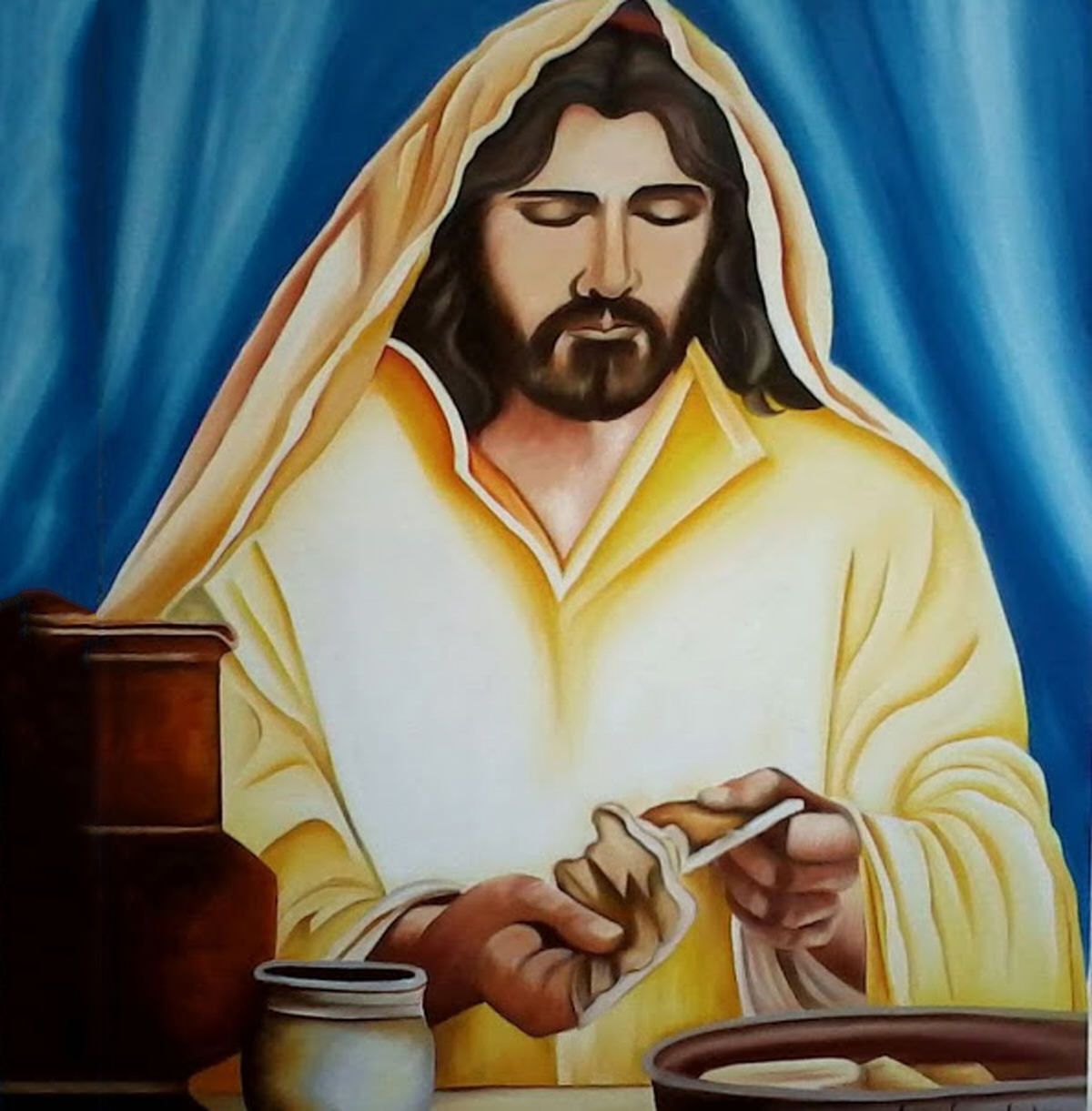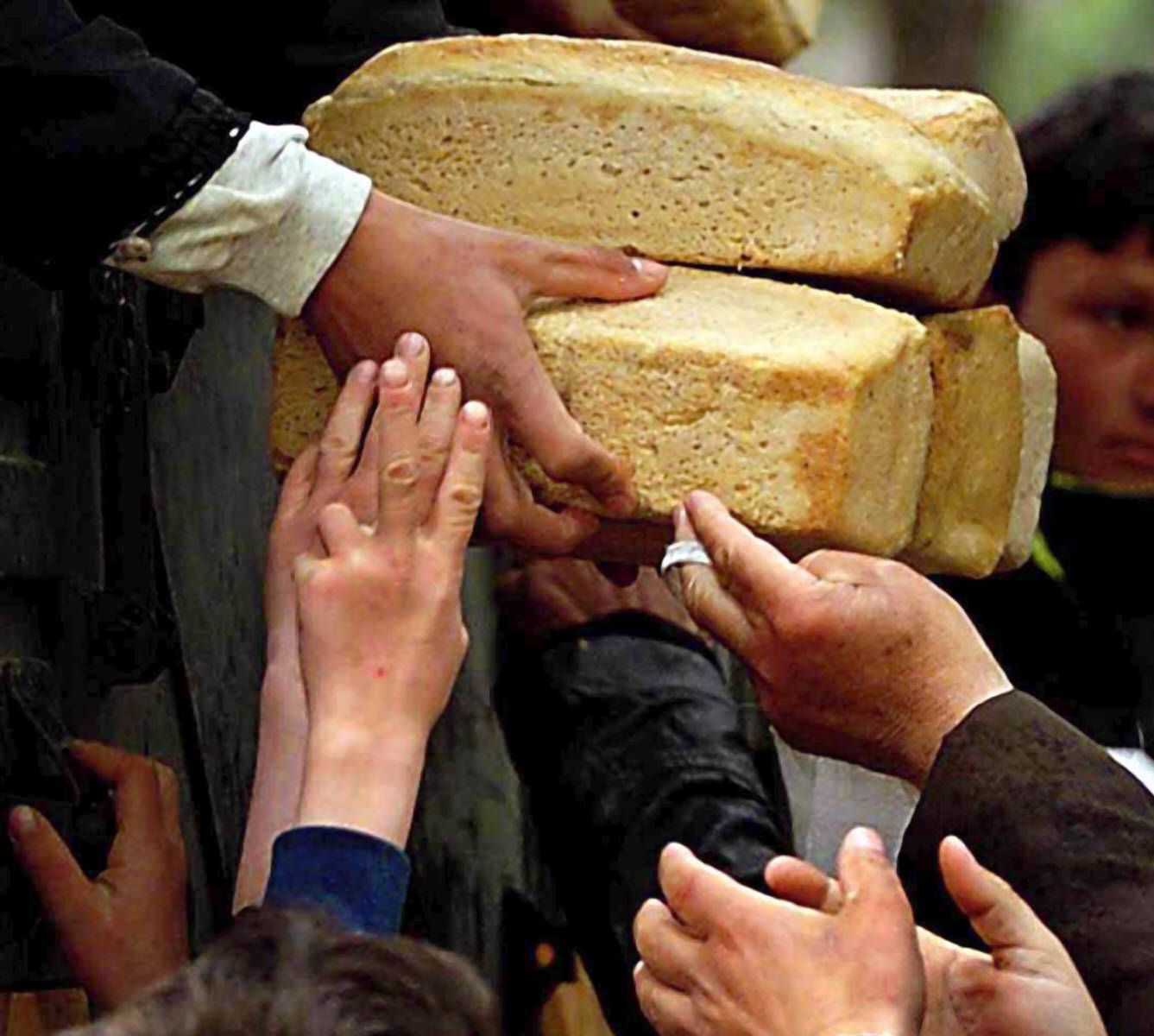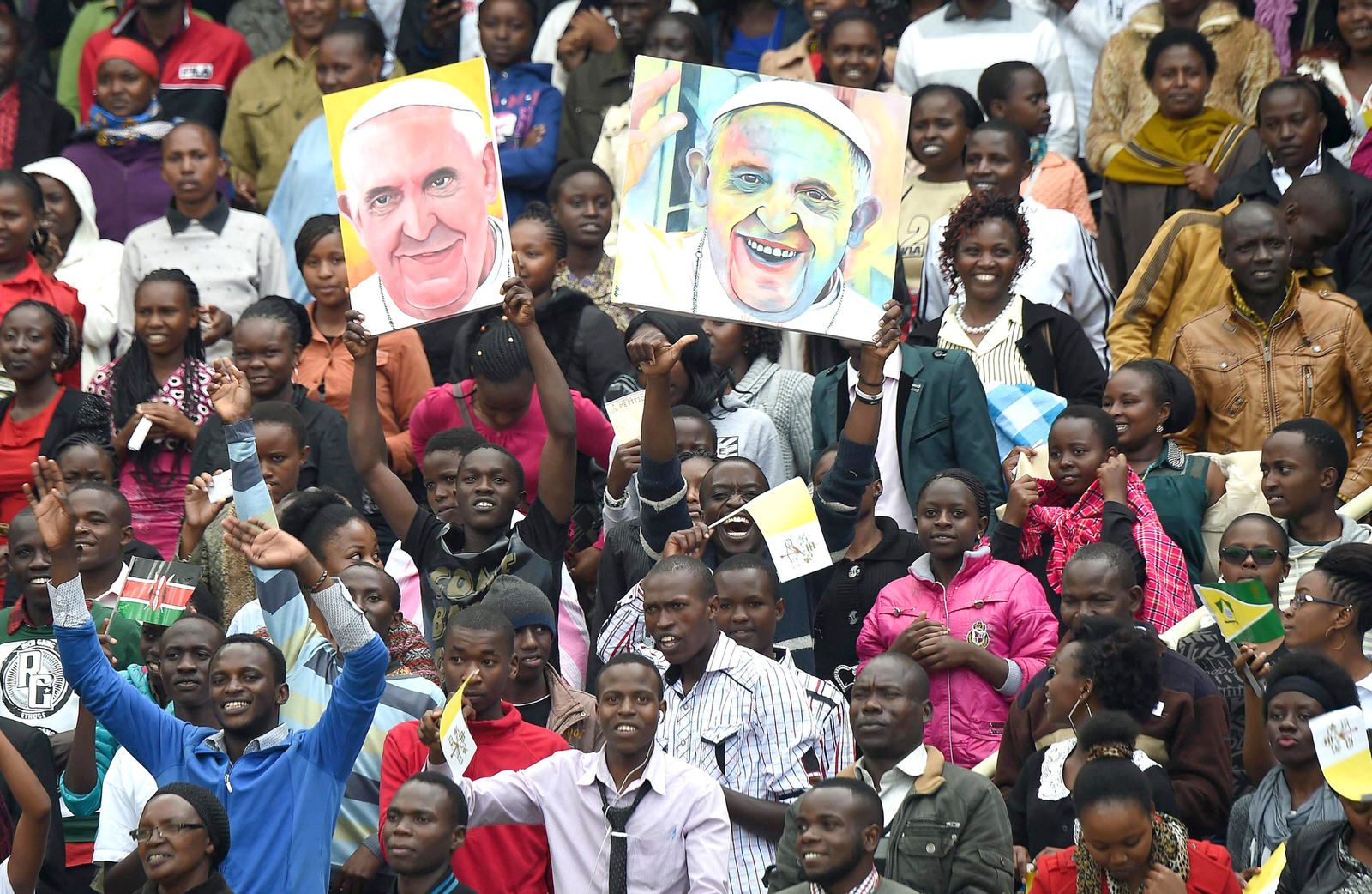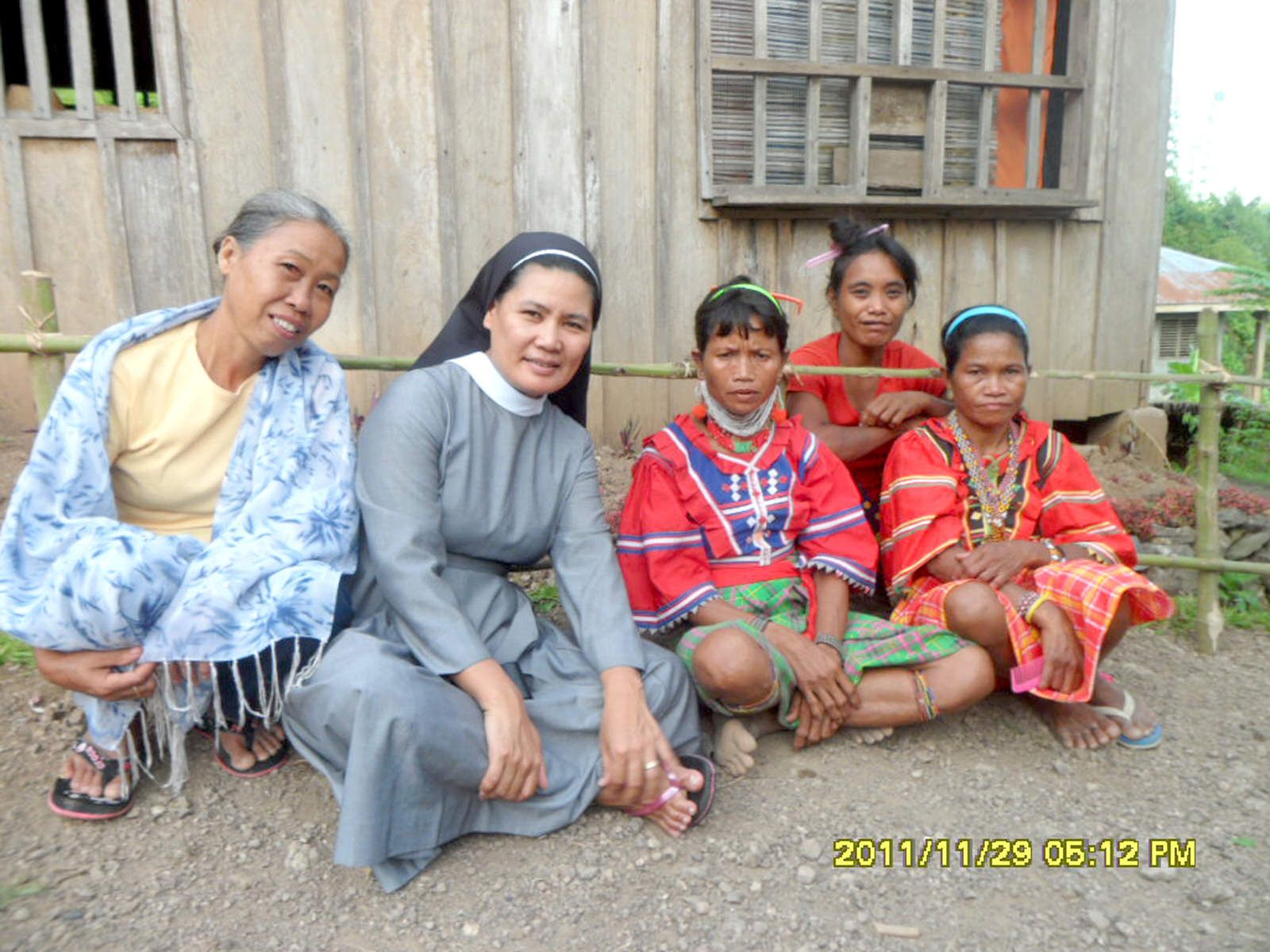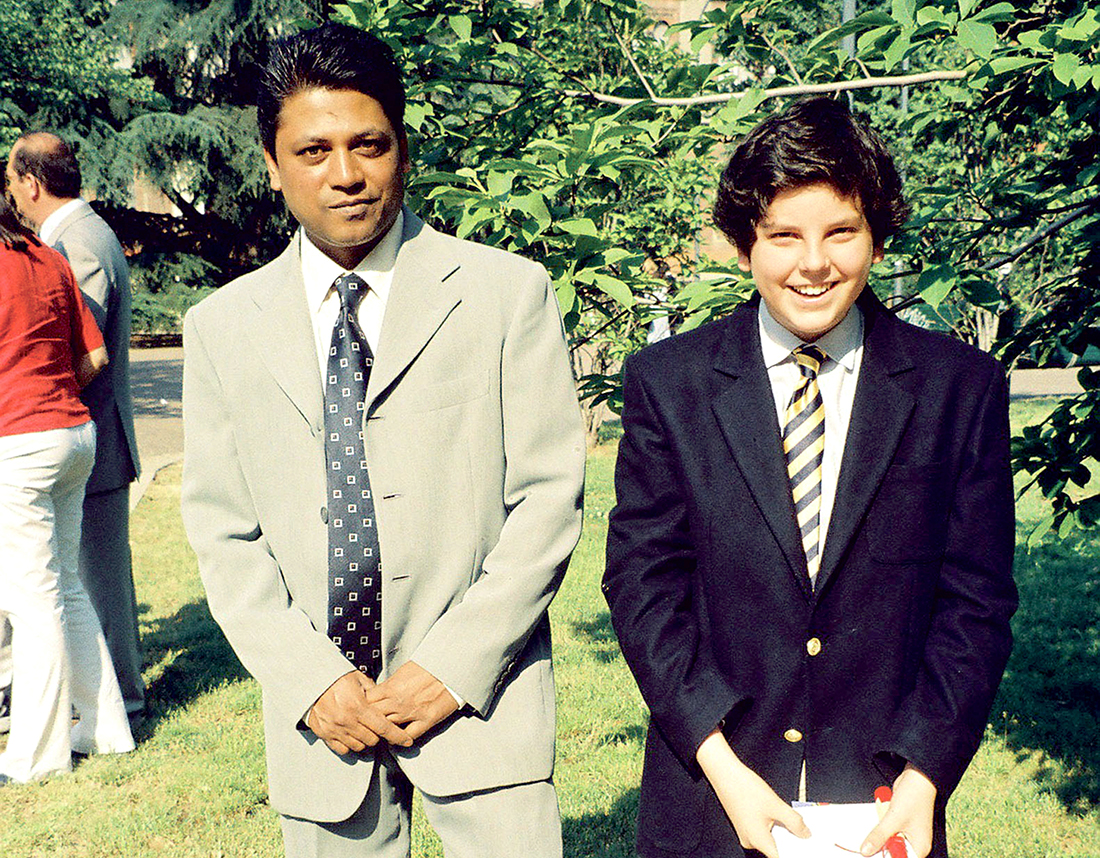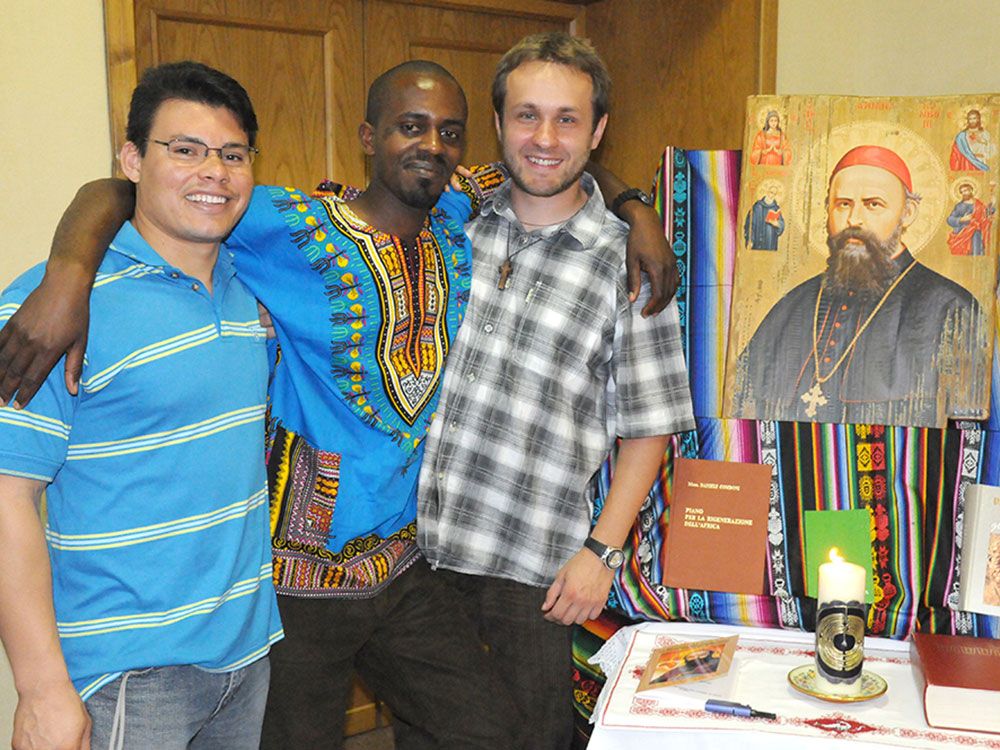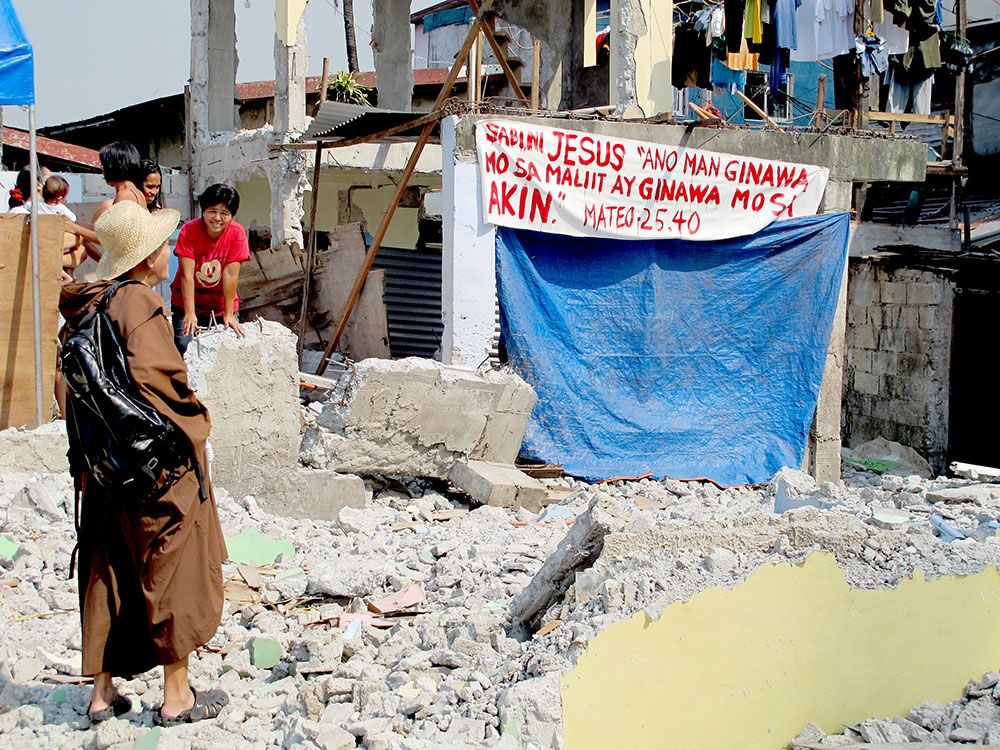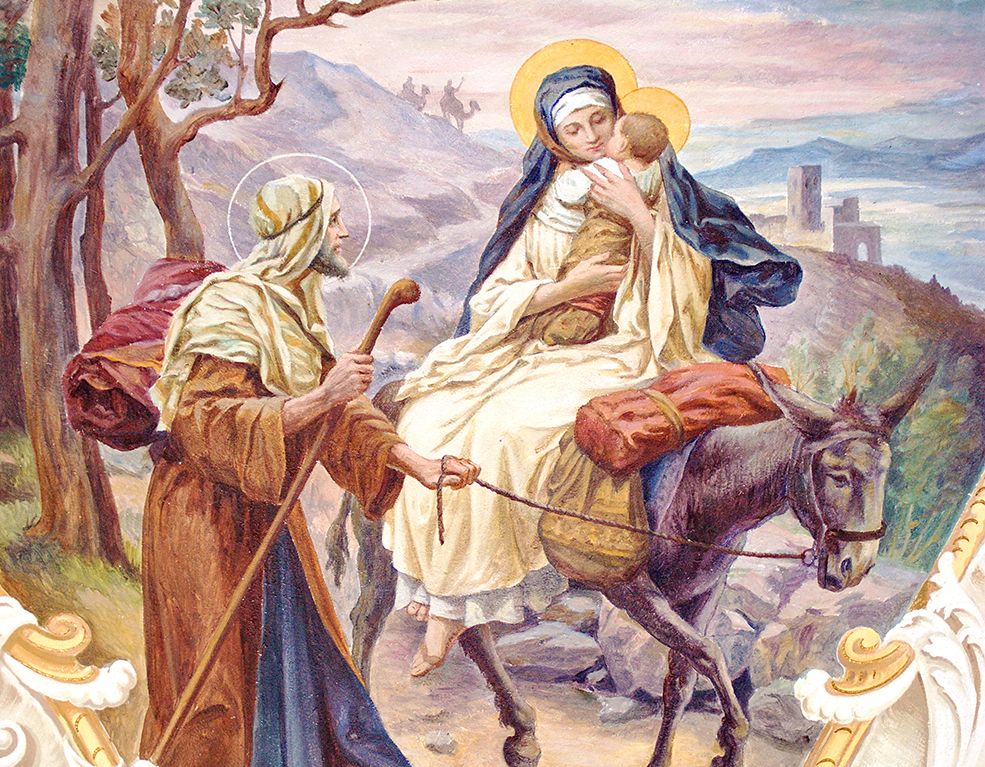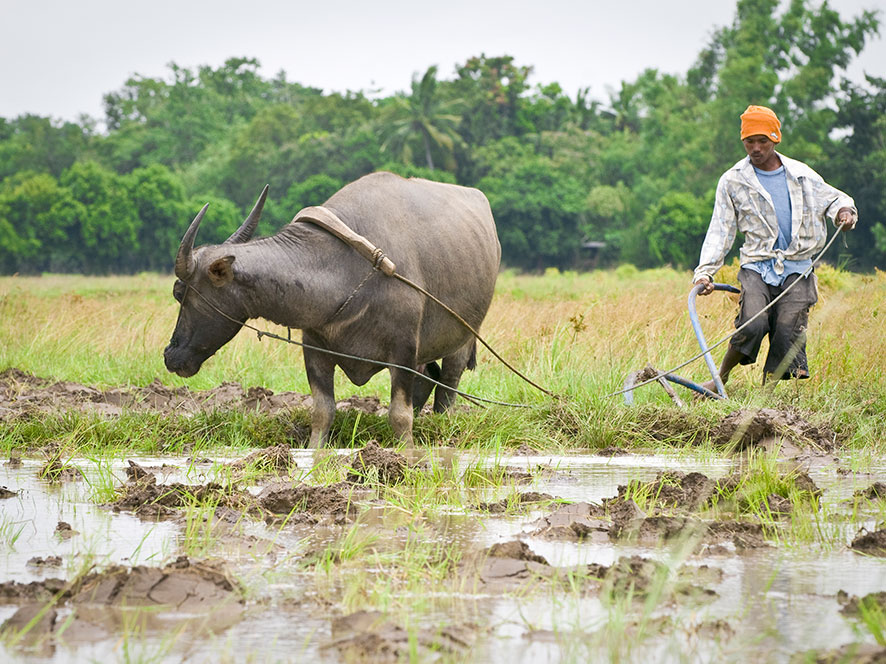Everything at the Last Supper speaks of closeness, intense sharing, warmth, depth. The “bondedness” that Jesus wishes to create among His disciples could not have been expressed in stronger words than these: ‘Remain in Me,’ He says, and I will remain in you’ (Jn 15:4).
We would like to respond, “Stay with us Lord,” as the disciples of Emmaus did, (Lk 24:29), especially as we feel the challenges of a changing world press hard upon us and the vision of faith grows dim all around us. His presence makes a difference; it provides the light we need and supplies the strength we lack. We pray that this is what the Cebu Congress will accomplish for us.
A meal is always a happy occasion for close sharing, and Jesus rarely refuses an invitation, especially when it offers Him an opportunity to reach out to someone who needs help: He had meals with Levi (Lk 5:27-32), with Simon the Pharisee (Lk 7:36-50), with another leading Pharisee (Lk 14: 1-24), with Mary, Martha and Lazarus (Lk 10:38-42), Zacchaeus (Lk 19:1-10), with the disciples of Emmaus (Lk 24:13-35).
But this occasion is unique. It is more than an ordinary meal with His friends. Here He means to draw His close disciples into an extraordinary experience of ‘communion,’ the memory of which will remain till the end of time. He breaks bread and gives it out to His disciples; and so He does with the cup (Mt 26:26-28; Mk 14:22-24; Lk 22:19-20; 1 Cor 11:23-25). He asks His disciples to continue to do the same whenever they gather.
Created for a mission
The most significant dimension of the Eucharist is that the ‘Communion’ it creates is for a mission. In fact, the Eucharist is Mission. The exchange of greetings, the reading from the Scriptures, the announcement of the Word, intercessions on behalf of the whole human family, invocation of the Holy Spirit, transformation of bread and wine into the Body and Blood of Christ, adoration and worship, the exchange of peace and communion, the sharing of the bread, and the final greetings with the exhortation to go forth and offer to others what they have received…all these together amount to a powerful proclamation of the Lord’s plan for humanity. “…every time you eat this bread and drink from this cup you proclaim the Lord’s death until He comes” (1 Cor 11:26). In and through the Eucharist, Jesus draws the whole of human society to Himself (Jn 12:32).
The Eucharist acts as the bond of togetherness and communion among Christian believers. But the love generated within a Christian family does not remain idle there; it reaches out to the entire society, going beyond differences of caste, class, ethnicity, nationality, and economic background.
Equips one for the mission
The “GO” at the end of the Eucharist is not mere ceremonial dismissal, it is a mission-laden mandate. It echoes the parting message of Jesus: “Go, then, to all peoples everywhere and make them My disciples… and teach them” (Mt 28:19-20), after which He adds an assurance, “I will be with you.” Though the mandate is clear enough, this reassurance of our Divine Savior alone can give us the courage to go beyond ourselves, and reach out to the ends of the earth. For, the way is long and the compulsions of the journey, demanding.
In an age when believers think that fidelity to the Gospel itself is strenuous enough, it calls for extraordinary courage and profound faith to take upon oneself the task of bearing Christ’s Message of Hope to others. It indeed calls for profound spiritual convictions to take it to the other side of the street, to the farthest slum, to the village beyond that mountain or the river, to people of other convictions, really to the ‘periphery.’
It demands even greater determination to go and speak of Jesus to other ethnic groups, as Paul did, or to move to distant shores as Francis Xavier did and as many Filipino missionaries are doing today, or to the ‘furthest limits of human existence and human agony,’ as Pope Francis invites us to do. The Eucharist is rightly called panis viatorum, nourishment for travellers. It supplies energies. It builds up inner sturdiness for the Mission.
Gives life, supplies energy
One remembers how Christian communities, under totalitarian regimes in recent times, not only survived but grew and flourished, strengthened by the Eucharist. For, the Eucharist gives life (Jn 6:35). Jesus says: “If anyone eats this bread, he will live forever” (Jn 6:51). It gives life to the world (Jn 6:32-33) – and life in all its fullness (Jn 10:10). It offers the word of life (1 Jn 1:1; Jn 6:68). There are more Christians under stress today than any other period of history. We need resolute convictions to remain faithful in this era of persecution, on the one hand, and secularization, on the other.
St. Ephraem has a powerful image in this connection. He says that the one who eats this bread, eats fire and clothes himself with fire. The disciples of Emmaus felt as though fire was burning in their hearts when they heard Jesus explain the Scriptures to them. No wonder they set out on their return journey the very same night, with a sturdy sense of Mission, after they had broken bread with Him (Lk 24:32-33).
There are times when a person in the service of the Gospel feels broken and exhausted in the face of growing indifference, opposition, or outright rejection. He/she would like to give up. “Take away my life,” he would like to say with Elijah. Then suddenly, he hears an angel’s reassuring voice: “Arise and eat” (1 Kings 19:4-7). Eucharist is nourishment. Indeed, “God strengthens those who are weak and tired” (Is 40:29).
‘Self-giving Mission’
Pope Benedict XVI says: “We cannot approach the Eucharist without being drawn into the Mission” (Sacramentum Caritatis, 84). Jesus’ example of self-giving conceals irresistible motivating power within, so that everyone who derives strength from Him feels drawn to do the same (1 Jn 3:16). Faith is not an idle intellectual conviction; it is a driving force towards self-giving, even to the point of self-forgetfulness.
“My life is the continuation of my Mass,” Blessed Alberto Hurtado used to say. Yes, the Eucharist overflows into life in the form of generosity, kindness, forgiveness, sincerity, and persevering work. It adds a quality to our decisions at home, in the kitchen, in the bedroom, in places of business and entertainment; in hospitals when the elimination of an unborn child is being contemplated, in the street where human dignity is dragged to dust, in executive office where the fates of millions are being decided.
The Eucharist takes Christian hearts by surprise, urging them to hasten to the aid of marginalized groups like the migrants, minority communities, and underprivileged. The rich go out to help the poor or get them an employment, scholars reach out to the slums and remote villages to take classes for the illiterate, highly-qualified persons spend a weekend giving training to unemployed youth, teaching catechism, or preaching a retreat.
Mission is dialogue
The Bishops of Asia have always emphasized the importance of dialogue with the poor. Here is a central Christian message: “When you run short of generosity, come close to the poor.” That is what Mother Teresa did. That is what Vincent de Paul did. Pope Francis invites us to draw near to “new forms of poverty and vulnerability” (EG 210). He assures us: “We also evangelize when we attempt to confront the various challenges which can arise” (EG 61). Human sensitivity awakens before genuine human needs.
However, there are times when we are tempted to act like the disciples before a hungry crowd. “Send them away,” they said; let them fend for themselves. Jesus’ response was different. “You yourselves give them something to eat,” was His prompt reply (Mk 6:37-44). Clearly, He was eliciting an initiative from them even in a moment of helplessness. That is when miracles happen.
The early Christians shared their resources (Acts 2:42-44). The Eucharist then is sharing, solidarity, and responsibility for the larger society, the poorer people. This Divine Sacrament becomes Mission and Dialogue when it brings healing to emotionally hurt individuals, broken families, and fragmented societies. It revives faith in unmotivated youth and reveals the face of Christ to persons who never had an encounter with Him. It brings industriousness and productivity to factories, creativity and enterprise to management, sincerity and consciousness to administration. It inspires Christian legislators, civil servants and public leaders to make political decisions on behalf of weaker communities and seek the common good at national and international levels.
Entrusting humanity to the Church
Today, human sensitivity seems to be weakening under pressure from the impersonal dimensions of the New Economy. Poverty deepens and takes on new and alarming forms, including human trafficking and enslavement in new shapes. The gap between the rich and the poor widens. Paul lamented about Corinth: “Some are hungry while others get drunk” (1 Cor 11:17-22). Today the gap is wider; and it keeps widening. Truly, humanity in our times feels broken and bruised, uncertain of its future, with horizons dark, hope sinking. Jesus seems to be commending this bewildered human family to the care of Mother Church, as he entrusted His beloved disciple John to Mary, “Woman, behold, your son”(Jn 19:26).
However, there are lights on the horizon. For example, there is general recognition of human interdependence, a conviction that we belong together, that our needs are identical, and that we need each other. Paul assures us that, in Christ, everything will find its proper place (Col 1:17), when people will learn to combine concern for themselves with those of others; for we form one body (1 Cor 12:12-30). Despite growing distances between self-centered communities, there is visible convergence of thought, fusion of longings, a desire for togetherness, and a thirst for the Transcendent.
Responding to the cry of Christ on the cross
Those who live in sheltered conditions little realize the cruel realities in which their less fortunate brothers and sisters live today. One may be a refugee, an immigrant, or a person thrown out of job; another may be a landless laborer, a street-urchin, or a person of humble caste origin. One may be struggling every day with alcoholics and drug-addicts, thugs, procurers or prostitutes in the neighborhood; another may have become inured to hearing of divorces, abortions, and children thrown on the streets; and another still may be feeling taken advantage of while in employment and outright exploited while out of job. Such people see all doors close around them as they look to the future.
However, they all cherish an eager desire to defend their personal identity, reconstruct their dignity, and move away from utter dehumanization. They would readily open themselves to anyone who came forward with sympathy, understanding, and hospitality. They would leap for joy if they could enter into dialogue with persons who would give them concrete assistance, protection from exploitation and bring meaning into their lives. These are situations when we think of Pope Francis’ call for a ‘Revolution of Tenderness’ (EG 288).
It is often during silent moments before the Eucharist that a believer hears the cry of the poor, a cry that rises to the heavens (James 5:4). It is here that he/she finds energies to sustain a worthwhile struggle. Some have gone to heroic extent in giving their lives on behalf of the weakest as Archbishop Oscar Romero did, who brought his Eucharistic energies to radical social commitment. He combined deep faith, with perceptive understanding of the situation and boundless courage.
Today the cry of Suffering Humanity cannot but stir even the most passive believer to some form of committed action. It is the cry of Christ from the cross. Until we recognize this truth, our Eucharistic devotion lacks depth. It was He who said that what was done to the poor was done to Him. (Mt 25:31-44). Let us learn to see Christ in the “distressing disguise of the poor” (Mother Teresa). “We need to develop a spiritual taste for being close to people’s lives” (EG 268).
The following is the catechesis delivered by His Excellency, Most Rev. Thomas Menamparampil, SDB during the 2016 International Eucharistic Congress in Cebu, Philippines. It has been abridged for publication. Emphases or capitalizations in the article are the author’s. – Ed

